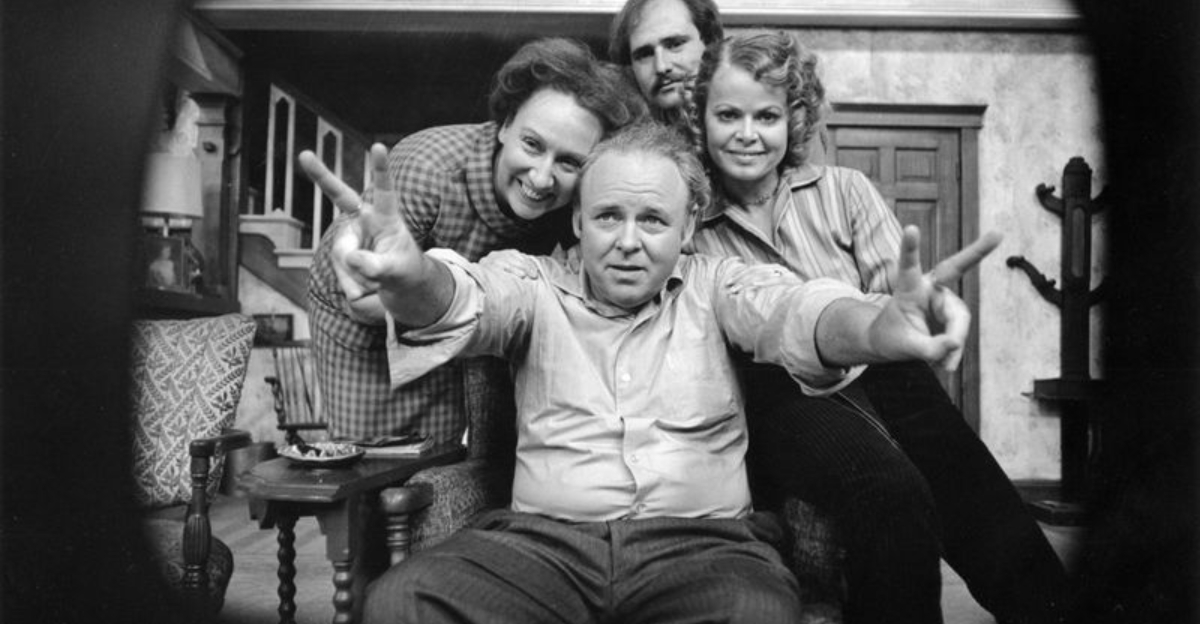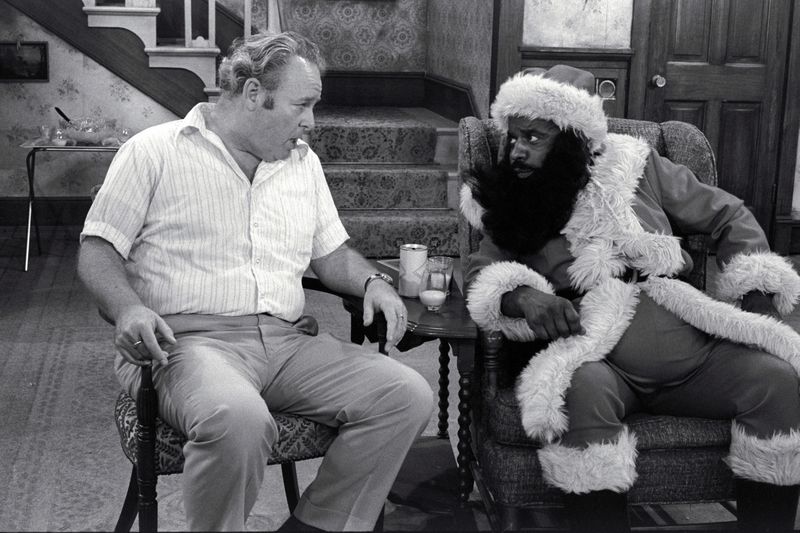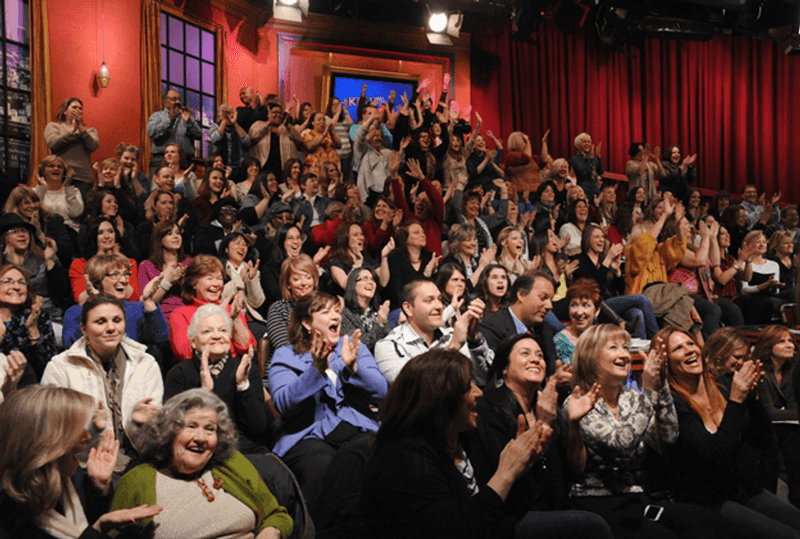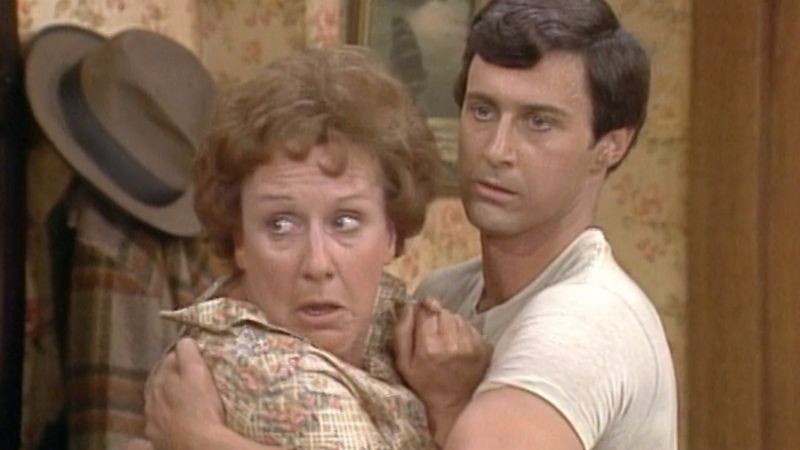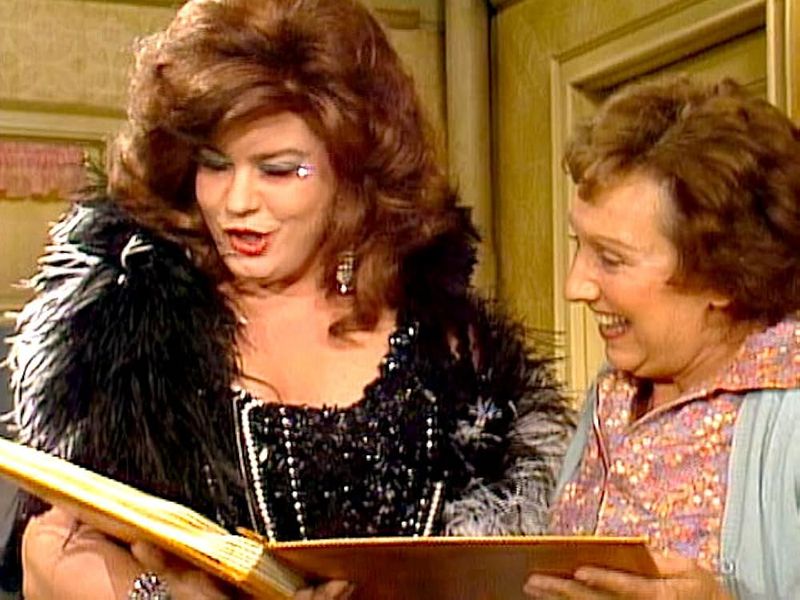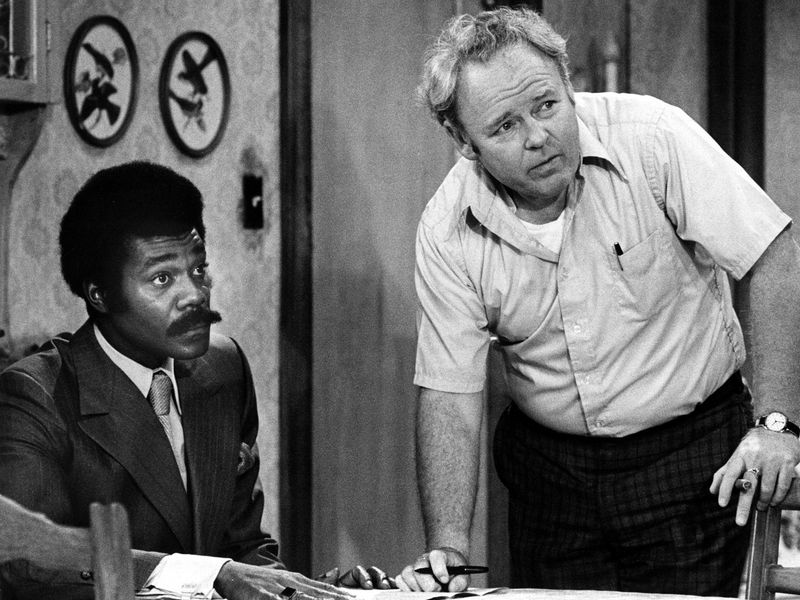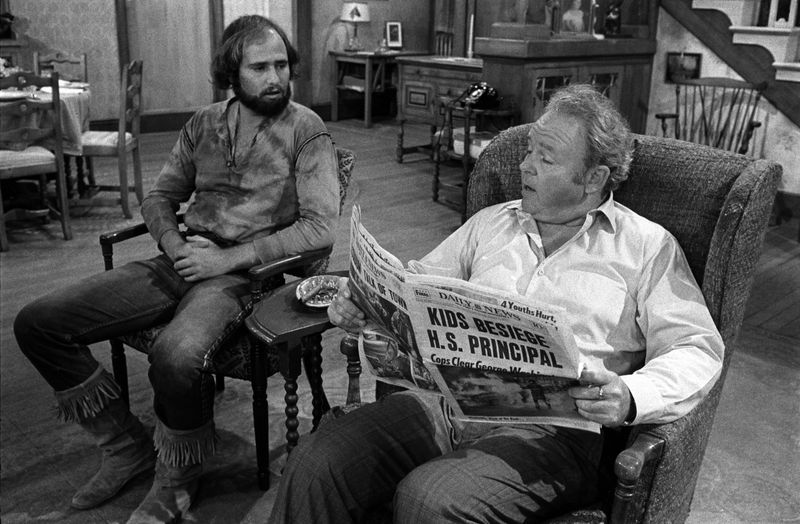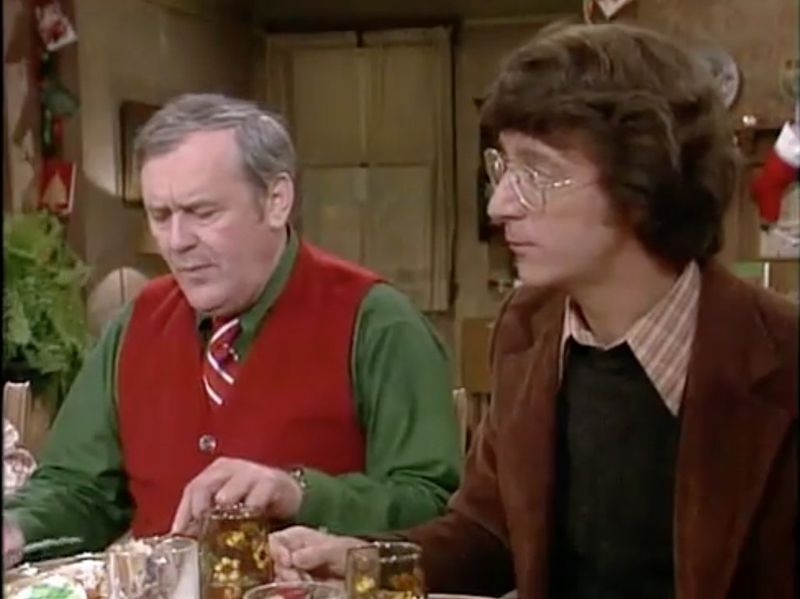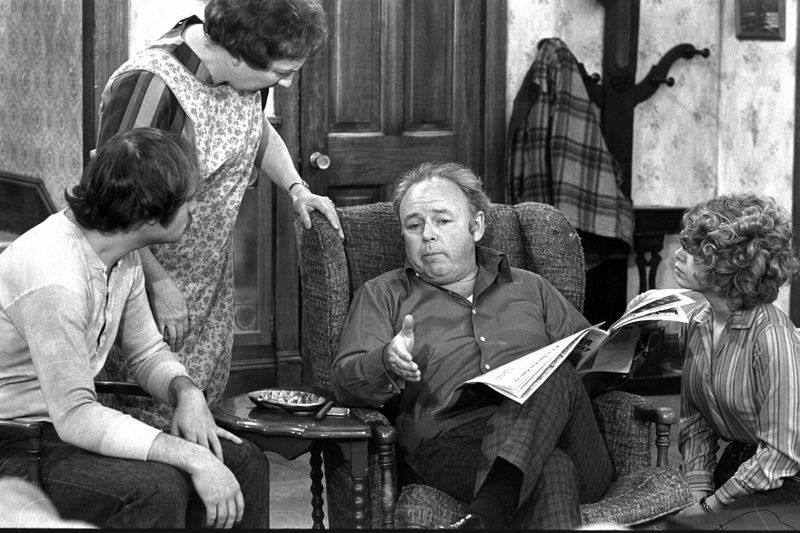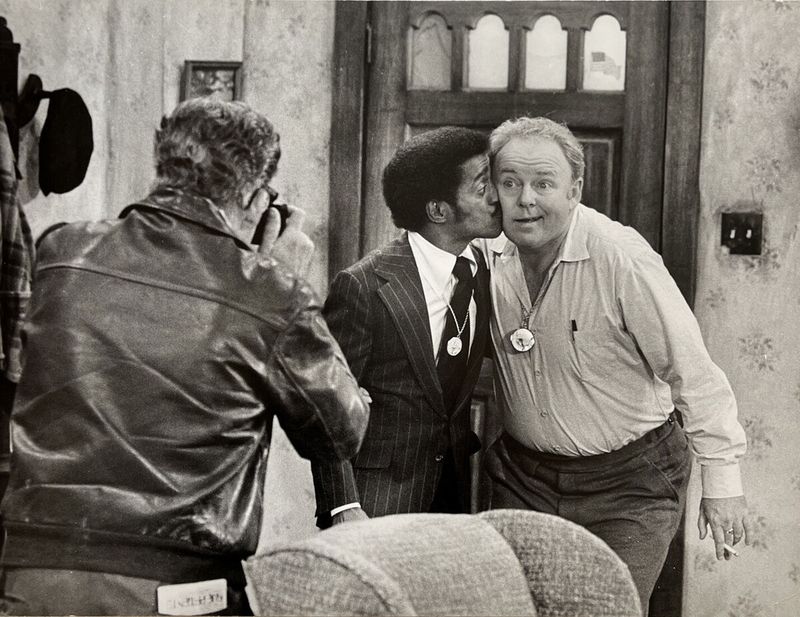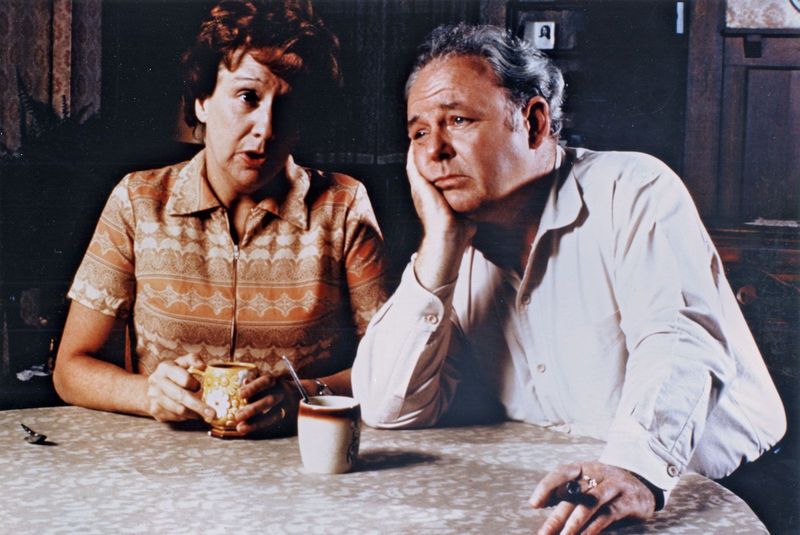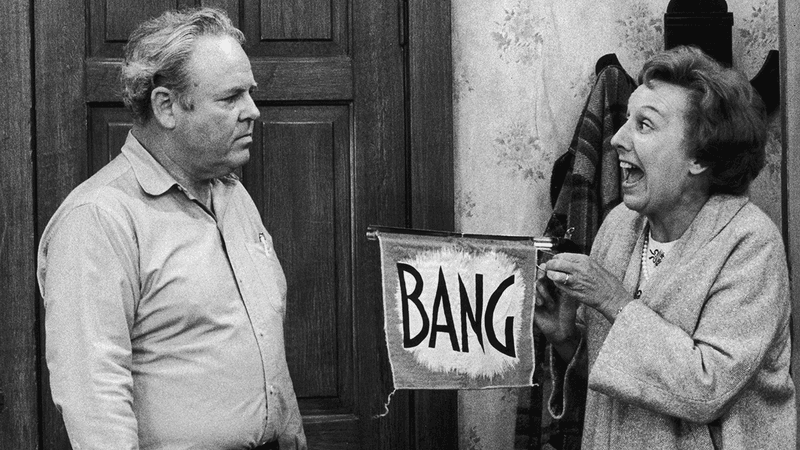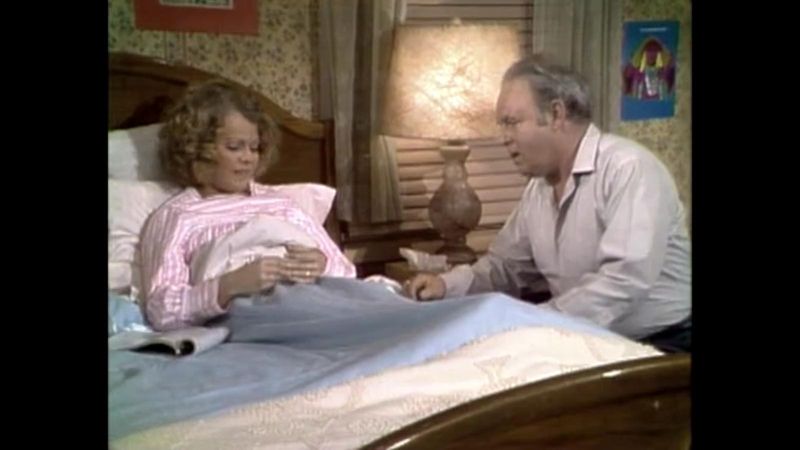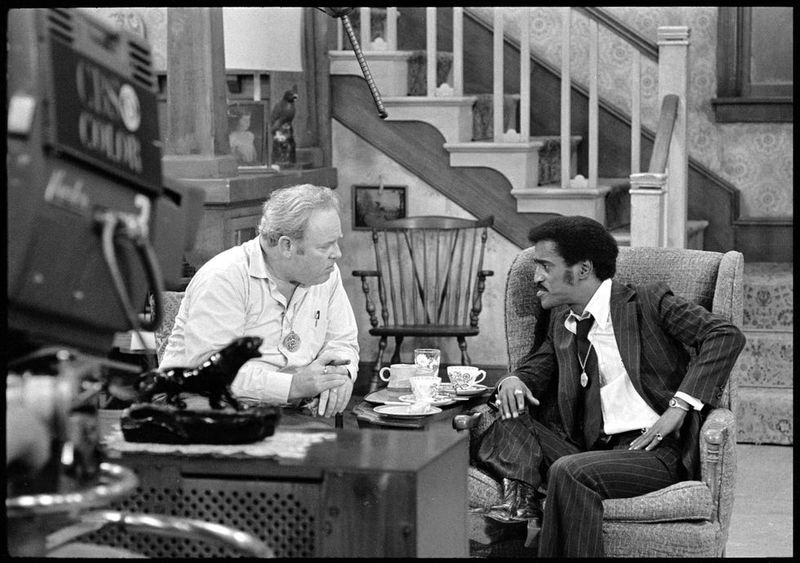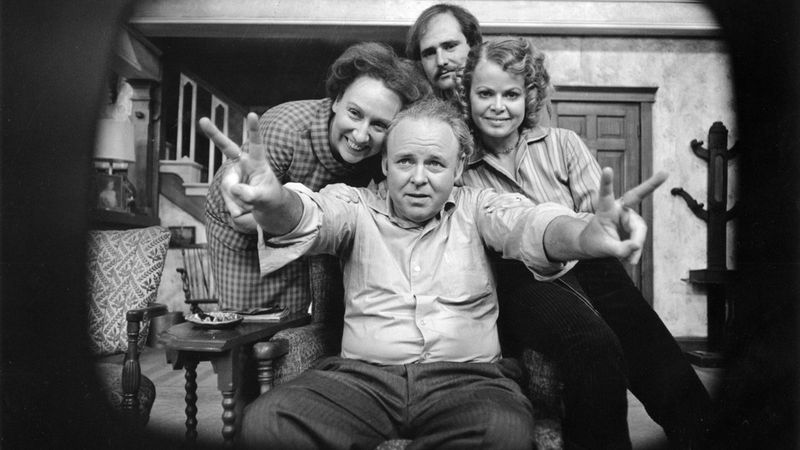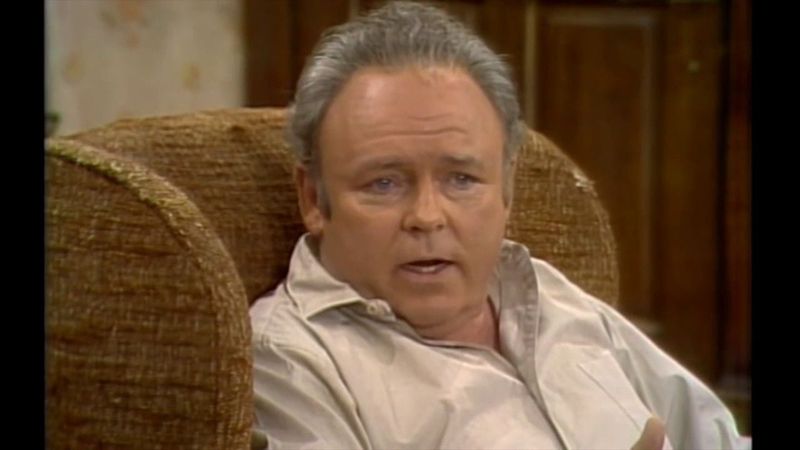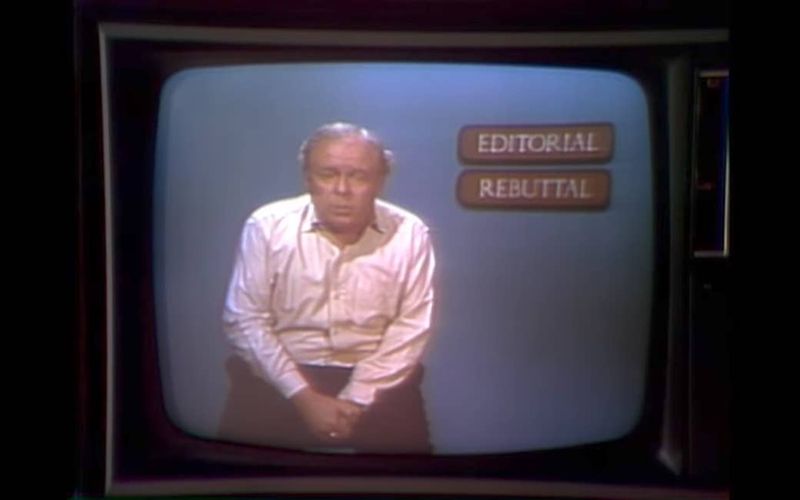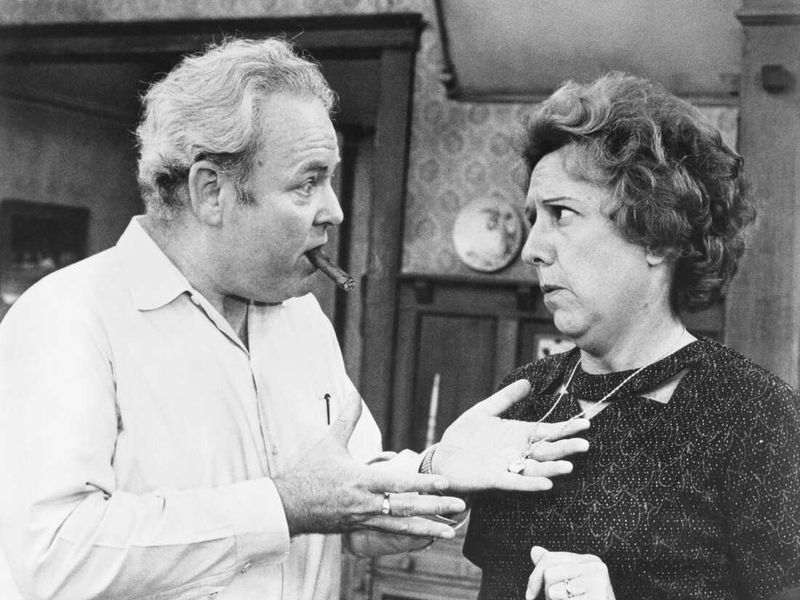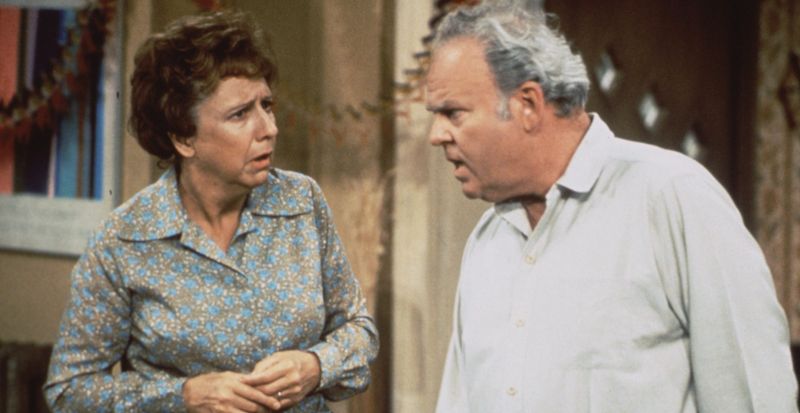When All in the Family premiered in 1971, it shattered every rule in the sitcom playbook. Norman Lear’s groundbreaking show tackled racism, sexism, classism—and just about every other “ism” that TV once avoided like the plague. But while it made history, it also pushed boundaries that would never fly on network television today. From slurs to storylines, here are 18 moments from All in the Family that would be considered too controversial for modern audiences.
1. Archie Uses Racial Slurs Casually
Archie Bunker was infamous for his bigoted vocabulary—using terms for Black, Jewish, and Hispanic characters that would get a show pulled today. Even if the character was meant to be criticized, the language would be a non-starter. His words, laden with stereotypes and prejudice, often sparked laughter but also reflection on societal norms of the time. In a modern context, such language would not only be frowned upon but likely censored to avoid promoting hate speech. The stark contrast to today’s more inclusive dialogue highlights how television has evolved, yet also how it once mirrored societal biases.
2. The Show’s Laugh Track After Offensive Jokes
Many of Archie’s most offensive one-liners were met with roaring audience laughter. This juxtaposition of prejudice and humor was a hallmark of the show. However, today, pairing bigotry with laughs would risk promoting those views, no matter the intended satire. Audience reactions, once seen as normal, now reveal the societal acceptance of such humor at the time. Reflecting on this, it’s clear that what was once considered comedic now borders on the inappropriate. Modern audiences would likely find this uncomfortable, urging networks to rethink the context in which laughter is encouraged.
3. Edith’s Sexual Assault Episode
In a shocking Season 8 episode, Edith is nearly raped in her home. The portrayal, though handled with sensitivity, was controversial due to its sitcom setting. Audiences at the time were stunned by the dramatic shift in tone. Today, airing such a traumatic moment in a comedic format would be highly controversial, prompting discussions about genre appropriateness. The episode attempted to address serious issues but faced criticism for its stark departure from typical sitcom themes. Ultimately, it highlighted the challenges of balancing humor with genuine social commentary.
4. The Transgender Identity Episode
In Season 6, Archie meets a former football player who is now a transgender woman. The episode was ahead of its time in certain ways, but it relied heavily on outdated language and shock humor. This portrayal, intended to elicit both laughs and thought, inadvertently highlighted societal misunderstandings. Today, such content would be approached with more sensitivity and accuracy. This episode serves as a reminder of how media has evolved in its portrayal of gender identity. The narrative shows the distance yet to be traveled in understanding and acceptance.
5. Archie’s Support of Segregation
Archie openly defends segregated schools and housing in multiple episodes, reflecting societal tensions of the era. His unapologetic stance was controversial even then, serving as a mirror to certain prevailing attitudes. Today’s shows would approach this topic critically—not with a sympathetic main character voicing those views. The dialogue around segregation has shifted dramatically, emphasizing equality and integration. Archie’s views, once a contentious yet accepted part of the narrative, now stand out as a reminder of past prejudices that television once dared to explore, albeit controversially.
6. The Frequent Use of Homophobic Language
The show used slurs for LGBTQ+ people that would get a show canceled today. Even when the show tried to promote tolerance, it often undercut itself with insensitive humor. These dialogues showcased the dichotomy of progressive intentions versus regressive language. Nowadays, such language would be heavily criticized and likely censored. The evolution of societal norms is evident in how current media depicts LGBTQ+ issues, focusing on inclusion rather than derogation. This shift marks a significant transformation in media’s responsibility to foster acceptance and understanding.
7. Meathead’s Anti-War Rants—And Archie’s Mockery
While Mike “Meathead” was the voice of liberal reason, the show often framed his anti-war activism as laughable or annoying. This portrayal reflected the polarized views on war during the era. Such false equivalence, which poked fun at anti-war sentiments, wouldn’t land in today’s climate. The show’s attempt to showcase both sides of the argument often led to misunderstandings about its stance. Today, such topics are approached with nuance and care, reflecting a deeper understanding of peace advocacy and its complexities in media narratives.
8. Archie’s Racist Joke About President Obama (Retrospective Airings)
In reruns and discussions, Archie’s hypothetical opinions about a Black president have been analyzed—and rightfully seen as deeply offensive. This retrospective insight shows how context shifts societal perspectives. It’s hard to imagine airing those jokes, even ironically, today. Such content underscores the importance of reflecting on past media with a critical eye. What was once considered merely provocative now reveals deep-seated prejudices that have been progressively challenged over time. The evolution in understanding racial dynamics continues to redefine acceptable media content.
9. The “Sammy Davis Jr. Kiss” Episode
This iconic moment, where Black entertainer Sammy Davis Jr. kisses Archie on the cheek, is still beloved for its humor. The entire joke hinges on shock value about interracial contact—something that would be critiqued today rather than played for laughs. The scene is a reminder of how societal norms have shifted, with today’s audiences more sensitive to racial implications in humor. Though memorable, it serves as a cultural artifact reflecting both progress and persistent challenges in racial representation and acceptance in media.
10. The Show’s Depiction of Women’s Roles
Archie frequently berates Edith for not “knowing her place” as a wife, a sentiment that was a recurring theme. The show’s satire was clear, but today’s audiences might not be as forgiving of repeated misogynistic lines—even in context. This portrayal highlighted the gender dynamics of the era, often providing commentary through Edith’s quiet resilience. In modern media, there’s a stronger push for equality, making such narratives seem outdated. The evolution of gender roles in media underscores a broader societal shift towards challenging and redefining traditional stereotypes.
11. Archie’s Defense of Spousal Discipline
In multiple episodes, Archie implies that it’s acceptable—or even necessary—for a husband to “keep his wife in line.” While played for laughs, any suggestion of domestic control or abuse, even in jest, would be considered dangerously inappropriate today. This reflects a time when such attitudes were more normalized, yet now they highlight the progress towards addressing domestic issues with seriousness. Today’s media prioritizes depicting relationships based on mutual respect and equality, demonstrating a significant cultural shift in understanding and addressing domestic dynamics.
12. Gloria’s Abortion Debate
In a 1970s episode, Gloria discusses abortion frankly—something revolutionary at the time. The show tackled this taboo subject with a depth that was rare for its era, sparking conversations that extended beyond the screen. Today, it would be a political lightning rod that most networks would steer clear of, especially in a comedy format. The episode remains a testament to the show’s willingness to address controversial topics, despite the risks. This approach paved the way for more nuanced discussions in media about reproductive rights and personal choice.
13. The Show’s Casual Use of the N-Word (Censored Today)
While not frequent, the word was used at least once in the show’s run. The use of such a term, even then, was intended to reflect harsh realities. However, modern audiences would find this language unacceptable, and even historical context wouldn’t justify its use on today’s TV. The evolution of language sensitivity highlights a broader societal push towards respectful dialogue. This shift shows growing recognition of the power of words and the responsibility media holds in shaping cultural narratives and understanding.
14. The Portrayal of Native Americans
Like many shows of its era, All in the Family had moments where Native Americans were reduced to stereotypes or the butt of jokes. These portrayals often came without any Native characters actually appearing on screen, reflecting deep-seated biases and misunderstandings. Modern media strives to represent Indigenous cultures with authenticity and respect, moving away from caricatures. This change signifies a growing awareness and appreciation for diverse narratives. The past portrayals serve as a stark reminder of the media’s role in perpetuating harmful stereotypes.
15. “Ethnic” Jokes as Punchlines
Archie routinely made jokes about the Irish, Italians, Poles, Jews, and more. These jokes, though framed around Archie’s ignorance, were a staple of the show’s humor. Modern audiences might find the volume and repetition of such jokes troubling, as it often normalized stereotypes. The evolution of comedy has shifted towards more nuanced and inclusive humor, recognizing the impact of words. This shift highlights a broader societal change towards embracing diversity and challenging outdated portrayals, aiming for humor that unites rather than divides.
16. The “Gun Control” Episode
In a Season 2 episode, Archie buys a gun to protect himself—an act intended to be humorous. The scene played into the anxieties of the era but now resonates differently due to today’s gun violence crisis. Such a premise would be sensitive for comedy today, reflecting the heightened awareness of gun-related issues. Modern media approaches these topics with caution, recognizing the complexity and sensitivity surrounding them. The shift underscores the media’s evolving role in conversation about safety and responsibility.
17. Archie Calls Feminists “Bra Burners” and “Hysterical”
Archie frequently mocked feminists and women’s lib, referring to them in condescending, sometimes threatening ways. This reflected the cultural tensions of the era, where feminism was often misunderstood or ridiculed. It’s unlikely modern shows would let that slide—even in satire, given today’s focus on gender equality and empowerment. The evolution of feminism in media highlights increased awareness and respect for gender issues. This change reflects broader cultural advancements towards understanding and supporting women’s rights and voices, emphasizing equality.
18. Edith’s Mental Breakdown Goes Mostly Ignored
Edith suffers from depression and emotional trauma in several episodes, but the show often brushes over it quickly. Her struggles were portrayed in a way that was typical for the time, lacking the depth and focus seen today. Modern media emphasizes mental health awareness, recognizing the importance of accurate representation and support. This change reflects a growing understanding of mental health’s complexities and the need for compassionate storytelling. The evolution in portrayal marks a significant shift towards prioritizing mental well-being in narratives.
